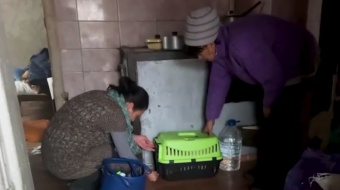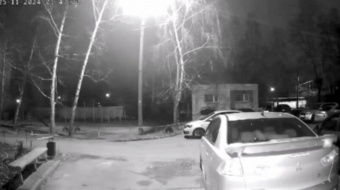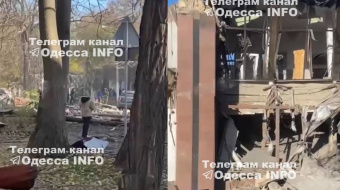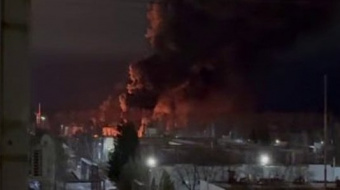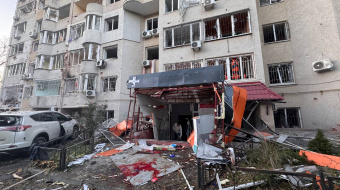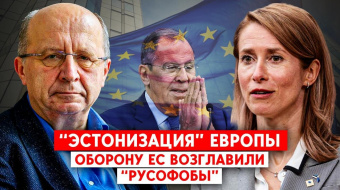Donetsk resident: If “DPR” learns who gives this interview, I will face prison. Part 2
Donetsk resident: If “DPR” learns who gives this interview, I will face prison. Part 2
Despite the fact that life on the occupied Donbas territories is still one of the main themes of Ukrainian mass media, its everyday realia are often not touched upon at all. As a result, they attract only political attention which does not show the full picture, of course. “The Phrase” managed to talk to one of locals and ask him about what is really going on in Donetsk today, what the situation is like in military, economic, political and social spheres there.
We do not mention the real name of the interlocutor.
Donetsk resident: If “DPR” learns who gives this interview, I will face prison. Part 1
How safe is Donetsk now if to speak about the crime level?
If we compare the situation now with 2014-2015 when militants were driving along the opposite side of the road with their hazard lamps on, or when they were taking away people’s cars, then the situation has improved of course.
Maybe they have calmed someone down or shot the most active ones dead not to spoil the image of this “pseudo-republic”. Me or friends of mine have not been deprived of any property, I learnt about such cases only from mass media. If you are not active and do not voice your position publicly (especially if it differs a lot from the generally accepted one) you do not have any problems.
Of course, if you show a Ukrainian flag somewhere or say something negative about Russian or “DPR” government, in particular, if you say this on social nets, you may become a political prisoner. I cannot imagine studying at universities now as people are deprived of their own opinion. Those whose opinion differed have been either sacked or arrested.
We still have curfew. I cannot understand why we need it as there are so many checkpoints and patrols along the roads. They explain that it is necessary as diversionists are active. From my own experience, a chance to bump into a patrol at the beginning and at the end of the curfew is much higher, at 1-2 in the morning there is practically none of them in the streets. I bumped into a patrol at about 11 p.m. for the first time. I lied them that I was coming back from a birthday party, they searched me and let me go. Besides, they were busy at that time as they were trying to spot several cars.
When they stopped me for the second time, I had to give them 400 rubles which I had. They told me that now they would have to look for another person as if they had some kind of plan: how many people who violate the curfew they had to catch.
What about economic and humanitarian situation?
“L/DPR” territory is in the Russian economic space now. The local currency is ruble and 80-90% of goods in shops are from Russia. Salaries have become lower they they were before the war. And if we take ruble prices and exchange rate into account, then the conclusion is that prices are one and a half-two times higher that in 2014. The only positive moment is low utility bills and this is really crucial for a lot of people.
You can find all necessary food in shops, they are cramped with it. The only problems we have are with office and electric appliances. Firstly, their supply is limited and secondly, the prices are much higher than in Ukraine. People in need, unemployed and retired ones get humanitarian aid from Renat Akhmetov (in the majority or cases) or from Russia. These aid kits saved a lot of people in time of hostilities and they are vital for some even now.
It is difficult to find a job. The number of working places is limited and the salary is extremely low. Some people even get food kits instead of money. If an enterprise is closed or reduces the amount of its production, the majority of employees are made redundant and have practically no opportunity to find any new job corresponding here. People go to look for work in other regions of Ukraine or in Russia.
A lot of people migrate from other “DPR” localities to Donetsk. Probably, life there is absolutely unbearable. Here, there are more opportunities to find at least some job. Besides, the rent is low. Some people let their flats practically for free, they just ask tenants to pay the bills and look after the flat (for it not to be confiscated if some militant likes it).
Restaurants, cafes and discos are open till the curfew begins. They can even be called crowded if we remember that there is the war and there is a constant risk of a shelling. There are also a lot of expensive cars in the streets. If you do not live here and you just come to walk around the city for a day or two, you will never say that there is a war. Roads are repaired as they used to be, roses are planted, transport infrastructure functions. It may seem that the city lives its usual life.
What do people think about politics?
People’s moods are largely formed by Russian and local mass media which dominate here. Despite the fact that nearly everyone has Internet access nowadays and it makes alternative information available, people read “Antimaidan”, “Novorossya”, “DPR” groups on VK, they find there information which is identical to that which is spread by Russian and separatist mass media.
This means, that people are self-isolated and they refuse to perceive the information which contradicts the generally-established points of view. However, one shop has a satellite antenna and Ukrainian TV is always on there. People come in and watch Ukrainian news. Even “DPR” militants have never said anything critical about it. You can also joke sarcastically with the shop assistant, for example, “we have achieved so much by this war” or “we used to live so badly in times of Ukraine but now our life is wonderful”.
Yevhen Sereda, “The Phrase”
New service "Explain Ukraine". This is a daily mailout of two articles which were written about the situation in the Donbas by Donbas journalists and translated into English. Honest vision of people who work in the field is unbiased and fresh which is crucial in the world which is full of desinformation and propaganda. We try to share this vision in out daily mailout. You can subscribe here.










